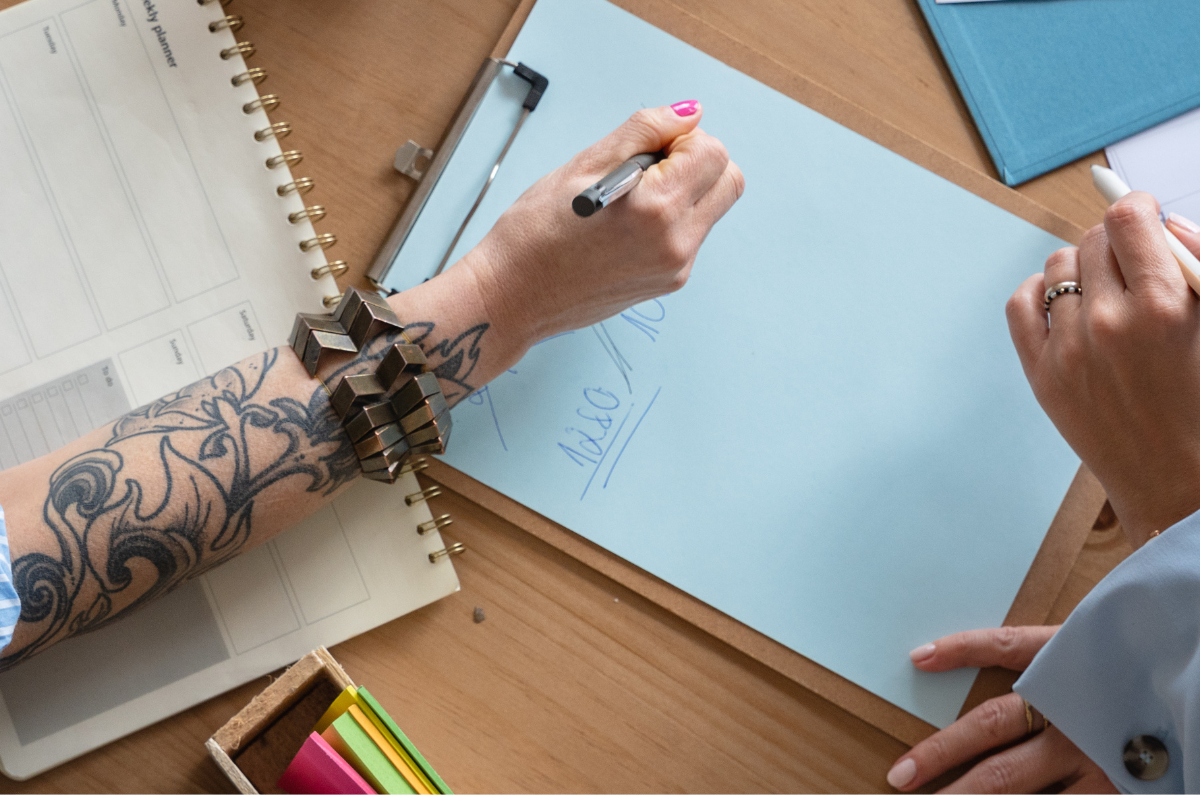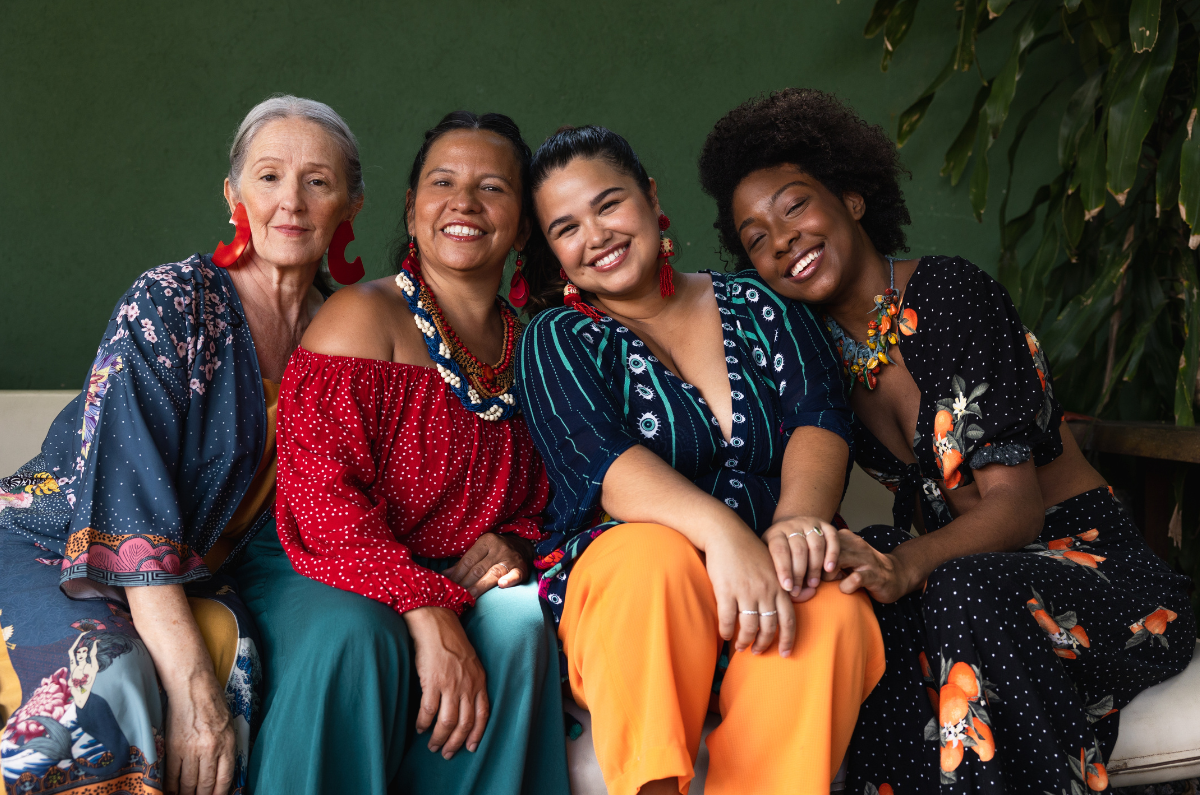Bella and Mikayla on World Young Rheumatic Diseases Day (WORD Day) 2025.
In recognition of World Young Rheumatic Diseases Day (WORD Day), Isabella Fitzgibbon (Bella) and Mikayla O’Neil, two young people living with musculoskeletal conditions sat down together to discuss musculoskeletal disease, their roles at Musculoskeletal Health Australia (MHA), and the important role WORD Day plays in raising awareness of musculoskeletal conditions in young people and in driving change.
Mikayla: Bella, I’ve heard you are a keen cricketer! What are your other interests?
Bella: Yes, I grew up playing cricket and enjoyed a couple of seasons of County Cricket in the UK, but I have always been an active person and enjoy taking part in fitness challenges. Last year, I ran my first marathon, I am not sure what 2025’s challenge will be, maybe a sprint triathlon, or a sub 60 10k….watch this space!
Beyond sport, I am studying Health Promotions at university, I rate myself as a chef and I enjoy spending time with my very BIG family!
So, tell me Mikayla, what are your passions or interests?
Mikayla: I am the youngest of four and from the beautiful coastal town of Warrnambool. My partner Bailey and I have been together for six years and I have two adorable cats, Tom and Juanita. Fun fact– I have the coolest birthday ever: 01/01/01!
One of my biggest passions is my Instagram page dedicated to chronic illness. It’s a space where I connect with others going through similar challenges, offering support and sharing what we’ve learned. Community makes such a difference when living with a chronic illness.
I also love dancing and calisthenics. While my rheumatoid arthritis means I can’t participate anymore, I still love supporting my local club. And when I need to unwind, you’ll find me binge-watching Real Housewives—New York, Beverly Hills, and Orange County are my favourites!
Now Bella, you said you ran a marathon and love sports… but I thought you had a musculoskeletal condition?
Bella: Yeah, I do! At eleven, I was diagnosed with SCFE which stands for, now wait for it… slipped capital femoral epiphysis – don’t try to say that when you have been having a few drinks, and had multiple surgeries. Now, I have severe osteoarthritis in my hip. Luckily, most days, it doesn’t stop me from doing what I love, but there are weeks when the pain flares up. I’m learning to listen to my body and ease off when I need to… although, I have to admit, I get inspired by Mylo’s muscles, so that’s easier said than done!
Speaking of Mylo, who’s your favourite World’s Biggest Sit-In mascot and why?
Mikayla: Jonty T Joint, for sure! She resonates with my condition the most, and her motto of slow and steady really speaks to me. It’s about making the most of exercise while building strength and flexibility—something I totally relate to!
Bella: My 4-year-old niece Bethany loves Jonty too! But Oli, my 6 year old nephew is a HUGE Mylo fan!
So, I know you had a surgery earlier this year, but I don’t know much about your musculoskeletal condition. Would you mind sharing a little bit about your msk journey with me?
Mikayla: Absolutely!
I have Rheumatoid Arthritis and Fibromyalgia, which makes every day unpredictable. Pain has shaped my journey—from missing out on social activities to school struggles, university challenges and employment opportunities being impacted, I have learnt that adapting to each day is key however it isn’t always easy.
I’ve had two joints fused, recently had the Darrach Procedure on my wrist, and I’m now preparing for two joint replacements in my right hand. It’s a tough road, but I keep pushing forward. I’m so grateful for the support of my friends and value the role community, particularly MHA plays in living with a musculoskeletal condition.
Bella: That sounds really tough, and I know that I have often felt like I am the only one going through something like this but…that’s not the case. You’re absolutely right—a strong, supportive community makes all the difference, especially on the hardest days.
We both joined the MHA team last year, and I love working on advocacy and awareness projects, especially using social media to make an impact. What does your day-to-day look like at MHA?
Mikayla: I volunteered with MHA for 3.5 years before officially joining last year. Now, I contribute to projects, sit on the Consumer Advisory Committee, and help run our Teen Talk support group for 13–20 year olds. It’s incredibly rewarding to use my lived experience to drive real change in musculoskeletal health.
Bella: I know – it’s great that MHA values lived experience and has given us both the opportunity to have a real impact. March 18th was World Young Rheumatic Diseases Day (WORD Day), and this year’s theme is Empower to Thrive. It’s an interesting theme don’t you think? If you think about it, I know when I feel empowered I do way better…What does that mean to you?
Mikayla: I know how frustrating pain can be, but to me, Empower to Thrive means not just living with arthritis, but instead through accessing the power of community and support, living a life where you achieve your full potential. I believe when we have the right tools and people around us, we build confidence, self-advocacy, and a sense of fulfilment.
Bella: I love that term self-advocacy, Mikayla, because I think when you live with chronic pain and musculoskeletal conditions you have to be your own advocate and champion…for your health and for others! Thriving isn’t about ignoring pain, it’s about finding what works for you, educating and empowering yourself, increasing your understanding and health literacy and making it count.
To me, Empower to Thrive means giving people the tools and confidence to live fully, with their condition. It’s not just about ‘getting by’—it’s about finding ways to keep moving, doing what you love, and knowing you’re not alone. I’m so excited about the work we’re doing at MHA to make this a reality!
________
The theme of this year’s WORD Day, “Empower to Thrive,” resonates with these young women who are using their experience to drive change and make a difference for others living with musculoskeletal disease. As part of the MHA team, their dedication to advocacy and raising awareness is helping others find the tools and confidence to live fully, no matter what challenges they face.
MORE INFORMATION



 Saturday, March 8 is International Women’s Day. The day is an opportunity to celebrate the achievements and contributions of women around the world. It’s also an important time to shine a light on a health issue that disproportionately affects women globally – musculoskeletal conditions.
Saturday, March 8 is International Women’s Day. The day is an opportunity to celebrate the achievements and contributions of women around the world. It’s also an important time to shine a light on a health issue that disproportionately affects women globally – musculoskeletal conditions.






